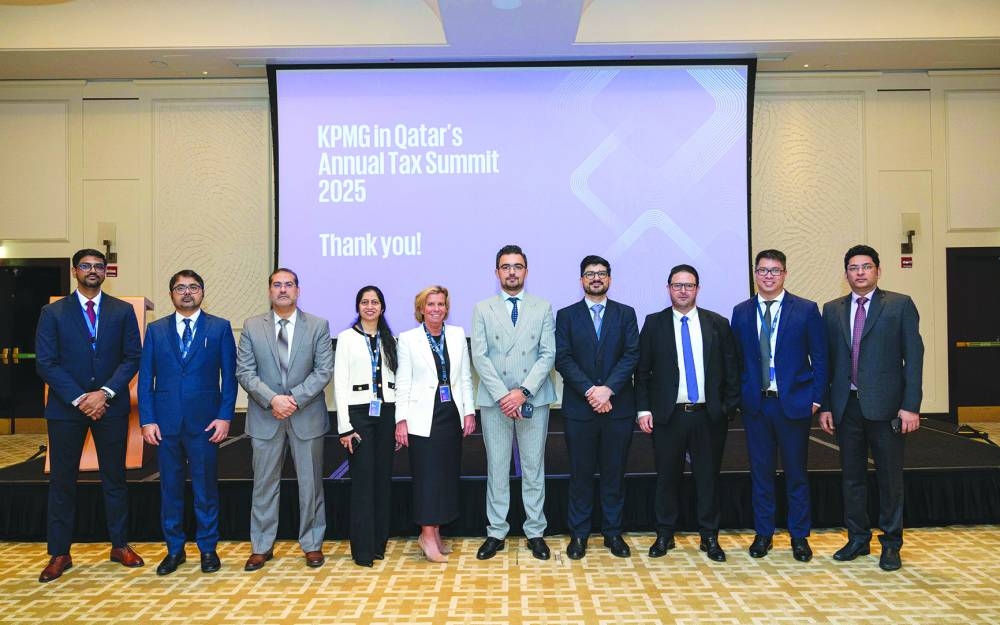KPMG in Qatar has hosted its Annual Tax Summit 2025, bringing together finance and tax professionals to explore the latest developments shaping Qatar’s tax landscape.
The summit provided a platform for in-depth discussions on Global Minimum Tax (GMT), recent developments from the General Tax Authority (GTA), transfer pricing, corporate tax strategies, tax refund opportunities and expected indirect tax updates.
Anand Krishan, director, International Tax, KPMG in Qatar, provided a detailed analysis of GMT implementation across the GCC, discussing its impact on businesses, available deductions and safe harbours, and the critical steps organisations need to take to prepare for legislative changes.
Haythem Zayed, tax partner, KPMG in Qatar, gave an updated overview of Qatar’s tax objection and appeal process, outlining key procedural steps and the enforceability of tax liabilities. He highlighted the growing importance of compliance and risk mitigation, particularly in light of potential penalties that could significantly affect businesses.
Khalil Khbabez, associate director, Tax, KPMG in Qatar, shared insights into recent tax appeal cases and the implications of asset seizures. He examined emerging enforcement trends, current challenges faced by taxpayers, and effective strategies to mitigate risks and ensure regulatory compliance.
Uma Patankar, associate director, Transfer Pricing, and Diego Tay, manager, Transfer Pricing, KPMG in Qatar, explored transfer pricing challenges in Qatar, offering best practices for audit defence and robust governance for all entities. Their session also highlighted areas for improvement in transfer pricing regulations across Qatar and the GCC.
Arsalan Khan, tax manager, KPMG in Qatar, presented key regional tax updates, emphasising the rapid evolution of taxation across the region. His session reinforced the importance of proactive tax planning to optimise tax positions amid shifting regulations.
Imran Ayub, tax director, KPMG in Qatar, provided a detailed overview of tax refunds, explaining the different types of refunds available, the application process, and essential documentation. He shared key strategies to help businesses maximise their claims and enhance tax efficiency.
Nurlan Sadraddinzade, associate director, Indirect Tax & Tax Technology, KPMG Qatar, led a session on indirect taxation, covering VAT implementation timelines, excise tax on sugary drinks, and updates to the GCC’s 12-digit unified customs tariff system. His insights helped businesses understand how to navigate these upcoming changes effectively.
Year after year, the KPMG Annual Tax Summit continues to be a hub for knowledge and collaboration, bringing together key stakeholders to share expertise, exchange ideas, and tackle emerging challenges.
The event consistently leaves a resounding impact on attendees, equipping them with the tools needed to stay ahead in an ever-changing regulatory environment. KPMG remains committed to empowering organisations with forward-thinking strategies for long-term success.

The summit provided a platform for in-depth discussions on Global Minimum Tax (GMT), recent developments from the General Tax Authority (GTA), transfer pricing, corporate tax strategies, tax refund opportunities and expected indirect tax updates.
